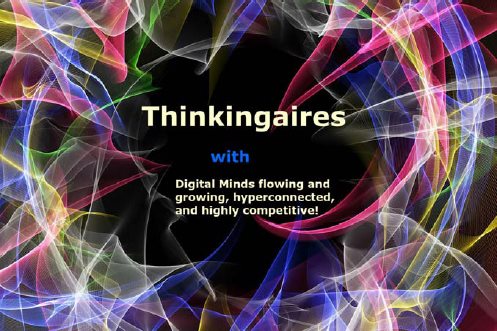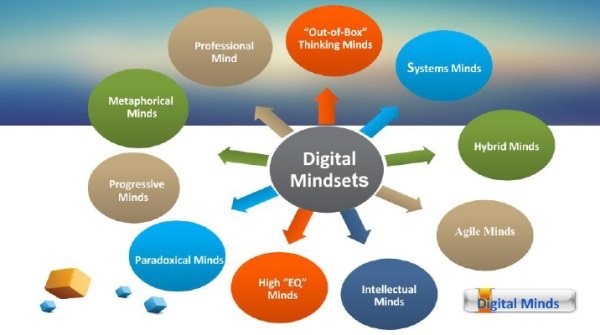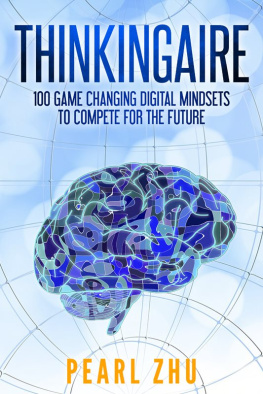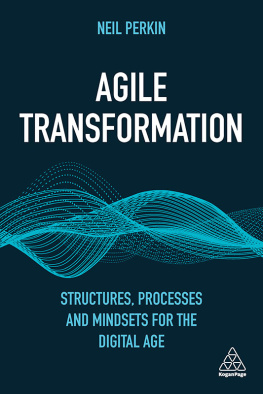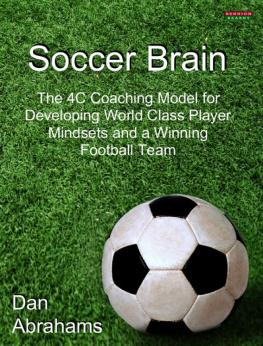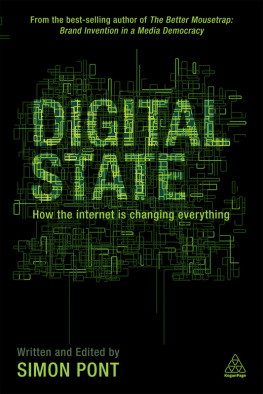Copyright @2016 Pearl Zhu
All rights reserved. No part of this book may be reproduced, stored, or transmitted by any means whether auditory, graphic, mechanical, or electronic without written permission of both publisher and author, except in the case of brief excerpts used in critical articles and reviews. Unauthorized reproduction of any part of this work is illegal and is punished by law.
ISBN: 978-1-4835818-1-1
Contents
THINKINGAIRE I ntroduction
(100 Game-Changing Digital Mindsets to Compete for the Future)
Change your thoughts and you change your world. - Norman Vincent Peale
Figure 1 Thinkingares
We have moved into the new digital age when information is abundant and where creativity becomes a baseline competence. The race of human against machine is ongoing. The knowledge life cycle is significantly shortened, and the pace of information technology is so rapid that no one can rest on a static mindset, past accomplishments, or the wishful thought that everything is perfect the way it is. Indeed, mindset is far more important than talent. Talent can always be developed by those who keep growth in mind. From talent management perspective, are mindful leaders or workers simply found in nature or nurtured? How do human beings think? Where do you draw the line about which aspect of human activity is conscious thought and which is mere reflex? How do you differentiate between well thought-out reflex and simple physiological reflex? Further, what happens when the basic needs are fulfilled? Do we stop thinking? What is the philosophy of mindfulness?
The term digital THINKINGAIRES we advocate in this book refers to the talented digital leaders and professionals who continue to create new ideas, to practice thought leadership, and to bring the world both content richness and context intelligence. They are the IMAGINEERS who can always come up with the fresh perspectives and think differently; they are the VISIONEERS who can digest, analyze and synthesize information and knowledge, to visualize the future clearly; they are the ENTREPRENEURS or INTRAPRENEURS who are creative in thinking about the alternative way to do things, and they are the CHANGE AGENTS who can create synergies from people, capability and the digital ecosystem that are greater than the sum of their parts. THINKINGAIRE is the guidebook to help digital leaders and professionals understand and cultivate digital thinking mindsets to compete for the future:
Figure 2 Digital Mindsets
Out-of-Box Thinking Minds: Out-of-Box is a shortened form, a metaphor that means to think differently, unconventionally, or from a new perspective. Out-of -Box thinking implies a certain level of creativity or unconventional problem solving.
Systems Minds: Systems Thinking provides the holistic way to view problems, better and more accurate understanding of the overall situation via connecting parts and whole, better defining the problems and how you should go about solving them and in what sequence.
Hybrid Minds: Hybrid Thinking is a set of interdisciplinary and integrative thinking processes we will need to solve many of todays complex problems, which require strategic consideration, systems intelligence, innovative approaches, cross-cultural and cross-generational perspectives, and multi-dimensional cognition.
Agile Minds: In a broader scope, agility is a philosophy of managing complexity and unpredictability through empiricism. Agility is the ability to adapt to the changes. Agile minds see the world through the lens of three Is: Interaction, Improvement and Innovation. Agile is a new, radical style of leadership.
Intellectual Minds: Intelligence is the capacity to understand and apply wisdom to the knowledge you are exposed to. There are as many different ways to characterize intelligence as there are different types and forms of information impinging on our senses.
Highly Emotional Intelligent Minds: Emotional Intelligence in its simplest form is being aware of our emotions and managing them to get best out of the situation. Its also about trying to understand other emotions and be empathetic.
Paradoxical Minds: The paradox is a situation, person, or thing that combines contradictory features or qualities. The paradox is the result of two opposing truths existing side by side, which can be both right. The paradox is also like the two sides of the coin, they are not just opposite, but also complementary, to make it a whole.
Progressive Minds: Progress represents change. Without change, one cannot even stagnate; she or he will be on a backward journey. Progress itself is change, whether it comes from individual or group efforts or is induced by environmental and cultural, tangible or intangible forces.
Metaphorical Minds: Psychologically, creative, metaphorical and poetic impulses and language congeal over time into systems of thought that take on a quality of being permanently true, through being institutionalized, systematized, and professionalized.
Professional Minds: A professional mind goes beyond professions, but we can always learn more about the thought processes from varying professionals as well. It takes a decade to grow a tree, and it takes more than one generation to shape the right mindset.
Anti-Digital Mindsets: Digital Transformation requires mind shift. In addition to the set point changing, transformation requires first shifting mindsets, and then building new capabilities & skills, reinforcing and embedding new practices and reflexes.
Mind vs. Mind: Its hard to say when we can make an apple to apple comparison of mind vs. mind. The truth is that each of us is a complex blend of contrasts - positive and negative; intuitive and logical with imperfect judgment.
We live in an era where often the mind is lagging far behind the speed of the internet. It must be acknowledged that changing mindsets can be a very long process: it takes both vision and strategy. It occurs only through a dialogical process. It requires a devotion to fairness, correctness, truth, progress and solid respect for fundamental rights. Change happens when mindsets turn into mind flow. You have to start with creating an awareness of the need for mind shift. You must change the belief that causes the thought and creates the emotion. Once the belief has changed, the reaction will automatically change. Many neuroscientists believe the essence of who we are, the memory, the personality, the emotion, the thinking process, and even the consciousness lie in those brain patterns. The saying necessity is the mother of invention might give a clue as to what motivates us to think. When the neurons in the brain start clicking and connecting, the thought is created; thoughts piled upon the thought forms inside your mind; and when the mind keeps wondering and growing, it enlarges who we are; our brain is part of our body, but our mind strengthens us as a being. The mind is probably not the brain alone. It may also be a whole-body phenomenon, with inputs from the environment as well. The brain is to mind as the eye is to sight. The brain is the hardware and the mind is the software with the totality constantly in action, hardware plus software. To look for the mind strictly within the brain, seems then as silly as looking for the music between the strings of a piano. The mind is much more than an active brain. The brain is like the hands that make the bread; the mind has the knowledge of how to do it. The brain belongs to the body, the mind to the heart. So its quite sobering to think that the vast majority of these thoughts we have each day are unplanned and completely random. Everyone can take the time to listen to and create some space to realign what is important to each of us: What do we value? What is our purpose in life? We learn our beliefs and most are learned and ingrained in our minds at a very young age. Some of these beliefs are developed from misinterpretations of what we see, hear and experience. Too often, we operate on autopilot, with our thoughts, emotions and decisions coming from a subconscious level - accurate or not. Unfortunately, these learned beliefs oftentimes limit our minds, forming our biases, or blind us from seeing the other side of a coin.
